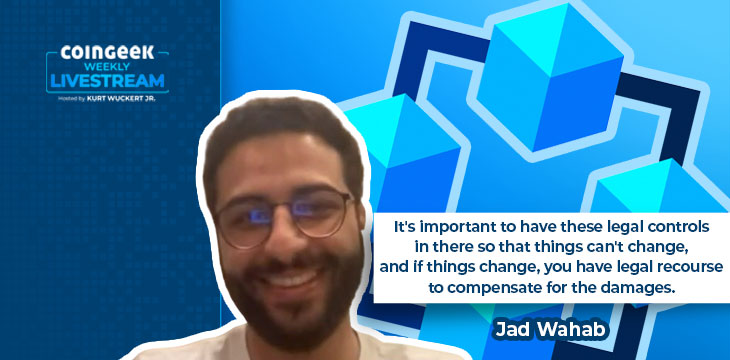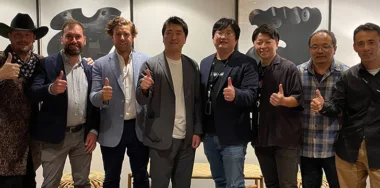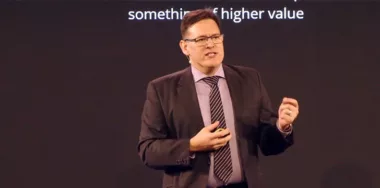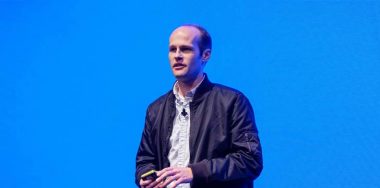This week, Kurt Wuckert Jr. hosted a special episode of the CoinGeek Weekly Livestream, where he talked to two guests from the BSV Blockchain Association, Jad Wahab and Marcin Zarakowski, about what it means to run honest nodes and their role in Bitcoin.
The history of honest nodes
Wuckert begins by asking Jad Wahab about the one return bug. This allowed any node to act either honestly or dishonestly and reassign an unspent transaction output (UTXO) just by doing it. He asks Wahab to explain this process and why some people think of this as a bug, whereas others see it as a feature.
Wahab describes this as a “philosophical thing” and says it doesn’t make that much difference. The system lends itself to miners becoming huge entities, investing lots of resources into their operations. This incentivizes them to behave morally and legally.
The digital asset recovery tool
Zarakowski starts to answer this with a more philosophical contemplation: he explains what Bitcoin is. He says that while some people perceive it as an anarchistic network where you can send transactions, it is not that.
“We don’t believe this mantra of not your keys, not your Bitcoin,” he elaborates, outlining the BSV Blockchain Association’s position that the system must operate within the law, including property law.
The Digital Asset Recovery Tool is a toolset or a set of software elements that allow for freezing assets when there is a valid court order. The set of software tools is composed of three elements, he says.
1. First is the node software – all miners require this to participate in the network and mine blocks.
2. The second element is a standalone software that operates in conjunction with SV Node software called Blacklist Manager.It automates the process of putting certain UTXOs on the blacklist.
3. The third element has not yet been released. It’s commonly referred to as a “notary tool.” It translates valid court orders into a machine-readable format and broadcasts them to Blacklist Managers run by miners.
Right now, the freezing of digital assets is possible. However, in time, parties with a valid court order will be able to recover digital assets.
On court orders
Wuckert says that as a miner on Bitcoin SV (BSV), he has talked to his legal counsel about what court orders to honor. He has said that, obviously, they would not honor such an order from North Korea, but the question remains whether they should honor one from a local jurisdiction. He wonders what it might look like when two jurisdictions disagree.
“There is nothing special about Bitcoin that can put it outside the applicable laws, including property law,” Zarakowski says. He asks us to imagine we are not talking about Bitcoin at all. He tells Wuckert to imagine he brought his car to the United Kingdom and lent it to someone who refused to give it back. He says Wuckert would simply go to court, provide sufficient evidence that it was his, and get a legal order to return it. While this would not be immediately valid in Norway, for example, most developed countries have processes for the domestication and recognition of foreign judgments.
Circling back to the example of a North Korean court order, Zarakowski says it would only be valid if it had been domesticated and recognized in the United States or another credible jurisdiction.
Delving into what this would look like from a practical standpoint, Wahab explains that there is no creation of new coins. He says to think of a bag that locks the tokens, which can then be unlocked later when the coins need to be moved. He says that, as a matter of fact, miners could already blacklist coins on any chain if they wanted.
Zarakowski adds that a court order from a jurisdiction like the U.S. would probably be enough to cause some publicly traded BTC miners to capitulate. While he thinks they’d put up a legal fight, he doesn’t think they’d be successful.
Revolution, counter-revolution, and disagreements
Wuckert sees the potential for a miner civil war breaking out over this. He wonders what this might look like and who Kraken, Huobi, etc., might side with. Zarakowski says that he believes exchanges would abide by the relevant court orders as they are business entities and wouldn’t want to accept the risk. He believes this would lead to a paradigm shift that would awaken many BTC advocates to the reality of how the law applies to Bitcoin.
Wuckert wonders what happens if stolen coins are moved on before a court order can be issued. Zarakowski says he isn’t sure how this will play out in most jurisdictions. He says to remember that the fact we are talking about Bitcoin doesn’t matter – the same laws apply as they would to any other sort of asset.
Answering a viewer’s question on what the point of using Bitcoin is at all if governments can just confiscate it, Wahab asks us to imagine a world where we could have random people stealing coins with no hope of recovery. He reminds us that Bitcoin was not designed to be political and won’t solve such issues. It records transactions; it does not govern them.
Wuckert wonders what would happen if all of the nodes colluded to make a change, such as adjusting the difficulty. Wahab replies that all of the controls are legal in nature. For example, they could get sued for damages by parties using the blockchain. He reminds us that Satoshi Nakamoto said the rules are set in stone.
Backdoors and cryptography
Wahab wants to address an earlier question Wuckert asked about backdoors and cryptography. He reminds us that Bitcoin is not a cryptographic algorithm but an economic system. Thus, backdoors can’t be added as they can in encrypted systems.
By contrast, everything that happens on Bitcoin is logged, and so it’s publicly visible on the ledger.
“There’s no encryption on Bitcoin,” he says.
The ‘Set in Stone’ Narrative
Wuckert says that he has always considered miners as the “fiduciary notaries of the system.” They receive what they obtain and relay what they can, advocating with the strength of their signal that they’re taking a fiduciary role. However, there are people in both camps saying that what’s being attempted here is impossible or technically infeasible. He wants to know what parts are set in stone and whether it’s possible to be a protocol spec that legally determines what Bitcoin is.
Zarakowski says it would be best to ask Satoshi about this, drawing laughter. Wahab says that some people consider “Set in Stone” almost religiously, while others see it as a technical thing. He says it is neither. Instead, legal controls keep things set the way they are. As everyone has agreed to a unilateral contract and has used the Bitcoin system with certain set rules, changing those rules leads to legal repercussions.
Wuckert interjects here to say his DMs regularly blow up with accusations that all of these interviews are smoke and mirrors and that everyone ultimately works for Dr. Craig Wright, who is attempting to steal Satoshi’s coins. Zarakowski responds that the legal recovery process is open to anyone (not just Dr. Wright), so anyone is free to try to beat him to the punch. Secondly, he asks us to see the good side of it: families that know their loved ones had bitcoins but who do not know the private keys will be able to recover what is rightfully theirs.
Nodes and exchanges
Wuckert says that this coin recovery is possible on BTC and BCH as well. He also notes that there are differences in these chains, such as script. He asks Wahab whether this software will be available on these chains. Wahab says he doesn’t spend much time focusing on them because they won’t last long, but from a technical standpoint, it can be done.
Zarakowski notes that once it is demonstrated as possible on BSV, legal attempts to say it isn’t possible on other chains will cease to be convincing.
Closing thoughts
Wuckert wraps this one up with some closing thoughts. He expresses his reservations about new ideas related to Bitcoin. He says there are some things he doesn’t like about Bitcoin, but he accepts them as unique, and we just have to deal with them as we have to deal with properties of gold or silver we might not like.
We often have to deal with distasteful realities, and we often have to accept what we can’t change. He again calls for Bitcoiners who disagree to see each other as humans and deal with each other respectfully.
Watch: Where does Blacklist Manager (BM) feature within DAR Process Explainer
New to blockchain? Check out CoinGeek’s Blockchain for Beginners section, the ultimate resource guide to learn more about blockchain technology.










